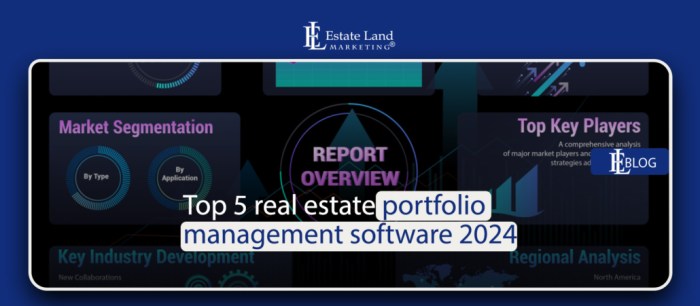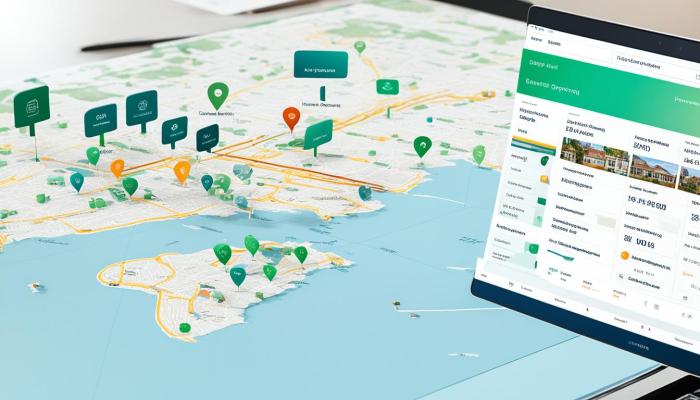Best real estate portfolio management software – Managing a real estate portfolio can be complex, involving various aspects like property valuations, tenant management, financial reporting, and legal compliance. Effective portfolio management is crucial for maximizing returns and minimizing risks. Choosing the right real estate portfolio management software can streamline these processes, enhancing efficiency and profitability. This guide explores the best options available, highlighting their key features and benefits.
Understanding the Needs of a Real Estate Portfolio
Before diving into specific software, it’s essential to understand the unique needs of your real estate portfolio. Are you a small investor managing a few properties, or a large-scale developer overseeing a substantial portfolio? Factors like property type (residential, commercial, or mixed-use), location, and the number of properties will significantly influence your software selection.

Source: com.pk
Key Considerations for Choosing Real Estate Portfolio Management Software
- Property Management: The software should effectively manage tenant communication, lease agreements, rent collection, and maintenance requests.
- Financial Management: Crucial features include tracking income and expenses, generating financial reports (profit & loss statements, cash flow projections), and budgeting.
- Compliance and Legal Aspects: The software should integrate with legal requirements, such as property tax filings and insurance management.
- Reporting and Analytics: Comprehensive reporting tools are vital for analyzing portfolio performance, identifying trends, and making data-driven decisions.
- Scalability and Customization: The software should adapt to your growing portfolio and allow for customization to meet specific needs.
- User-Friendliness and Support: A user-friendly interface and responsive support are essential for smooth operation.
Top Real Estate Portfolio Management Software Options
Several robust real estate portfolio management software solutions are available, each with unique strengths. Here are some of the leading options:
1. Propertyware
Propertyware is a comprehensive platform known for its advanced features in property management, financial reporting, and tenant communication. It offers robust features for complex portfolios and extensive customization options.
2. Buildium
Buildium is a popular choice for residential property managers, offering a user-friendly interface and strong features for tenant management, rent collection, and maintenance. Its strong integration with other real estate tools makes it a popular choice.
3. Yardi, Best real estate portfolio management software
Yardi is a powerful, industry-leading software solution suitable for large-scale real estate portfolios. Its extensive features cover various aspects of property management, financial analysis, and compliance. Yardi caters to more complex needs.
4. AppFolio
AppFolio offers a versatile platform for managing residential and commercial properties. Its focus on automation and ease of use makes it a good choice for various portfolio sizes. AppFolio also provides excellent mobile access.
5. Rent Manager
Rent Manager is a user-friendly solution designed specifically for residential property management. Its intuitive interface and focus on efficiency make it a practical choice for small to medium-sized portfolios.

Source: proprli.com
Real Estate Portfolio Management Software: Tips and Tricks
To maximize the effectiveness of your chosen software, consider these tips:
- Data Entry Accuracy: Accurate data entry is paramount for reliable reporting and analysis.
- Regular Maintenance: Keep your software updated to benefit from new features and security patches.
- Training and Support: Invest in training to ensure staff proficiency in using the software.
- Integration with Other Tools: Explore integrations with accounting software, CRM systems, or other tools to enhance workflow.
Frequently Asked Questions (FAQ)
- Q: What is the cost of real estate portfolio management software?
A: Software costs vary significantly depending on the platform’s features, the number of users, and the complexity of your portfolio.
- Q: How can I choose the best software for my needs?
A: Carefully evaluate your portfolio size, property types, and specific needs. Consider free trials and demos to experience the software firsthand.
- Q: What are the benefits of using real estate portfolio management software?
A: Enhanced efficiency, improved financial management, better tenant communication, and compliance with legal requirements.
- Q: Are there any free or low-cost options available?
A: Yes, some software providers offer limited-feature free trials or affordable plans suitable for smaller portfolios.
Conclusion: Best Real Estate Portfolio Management Software
Selecting the right real estate portfolio management software is critical for success in the real estate industry. By understanding your needs, researching available options, and considering user-friendliness, scalability, and cost-effectiveness, you can choose the best solution to maximize your portfolio’s profitability and minimize potential risks.
Call to Action
Ready to streamline your real estate portfolio management? Explore the available software options today and discover how they can revolutionize your business operations. Visit [link to a relevant resource or comparison website] to learn more.
FAQ Guide
What are the common security features offered by real estate portfolio management software?
Many platforms offer robust security features, including encryption of sensitive data, multi-factor authentication, and access controls to protect your financial information and tenant data. It’s essential to verify the security protocols and certifications before committing to any software.
How can I integrate my existing accounting software with a real estate portfolio management software?
Many modern platforms offer API integrations to connect with popular accounting software, enabling seamless data transfer and eliminating manual data entry. This integration streamlines financial reporting and improves overall efficiency.
What types of reporting capabilities are usually included in these software solutions?

Source: newsilver.com
Reporting features vary, but generally include customizable dashboards, financial statements (income statements, balance sheets, cash flow statements), property performance reports, and tenant activity reports. These reports allow for in-depth analysis of your portfolio and informed decision-making.